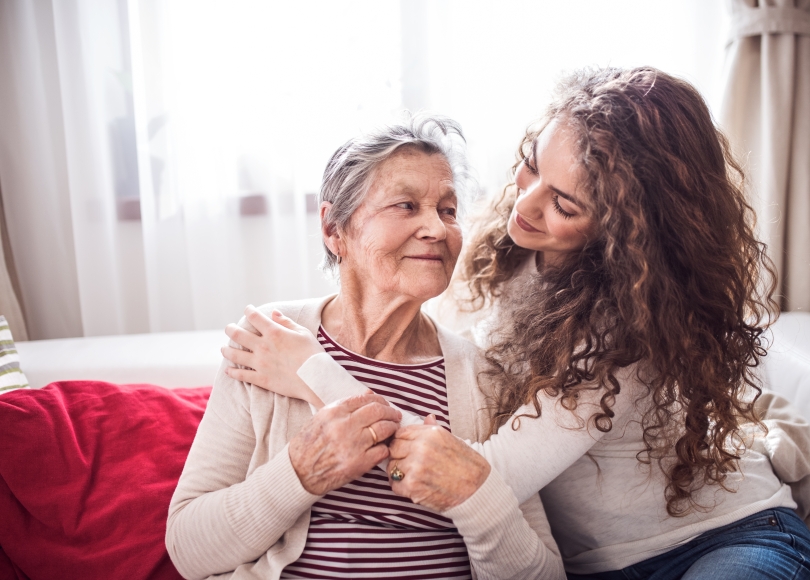By Sarah Seweryniak
Home is where we feel secure, comfortable, and cared for — a special place that holds lifelong memories and traditions. However, as we age, there may come a time when our home is no longer the safest option. Sometimes, this change happens suddenly, due to an illness or injury. Other times, the signs that living safely at home is not in a person’s best interest can be subtle and go unnoticed.
The National Council on Aging (NCA) reports that approximately 80% of older adults have at least one chronic condition, while many have more than one. It can be difficult to manage a chronic condition while maintaining the tasks of daily living at home. It can also be overwhelming for those caring for an aging loved one. In fact, caregivers can often spend 24 to 40 hours per week tending to a loved one’s needs. For some older individuals, making safety and accessibility improvements within the home may be enough to help them remain independent, while others realize that it is time to consider an adult home or assisted living community.
Here are key signs that may indicate extra care is needed.
Changes in appearance. “The most common sign that someone needs to be in a more supervised setting is often their appearance. They don’t look like themselves,” says Patricia Schoch, regional registered nurse for Elderwood. She adds, “That’s one of the signs that families don’t often think to look for. Pay attention to things like hygiene, clean clothes, and even dressing appropriately for the weather.”
Their home is not well-kept. For many aging seniors, taking care of a house or apartment becomes too challenging. Unusual messiness or dirtiness can be a warning sign that your loved one needs help. Also, check the refrigerator and pantry for spoiled or expired food. Finding spoiled food can be a cause for concern, especially due to possible health implications associated with consuming food that is expired or contaminated.
Missed medications. Noticing that medications are not being taken as prescribed is an important sign that extra help is needed to stay healthy and safe. You may wish to periodically count medications to ensure that they are being taken properly. You’ll also want to verify that prescriptions are being refilled as needed.
These are just a few of the signs that your loved one may no longer be safe living in their home. More obvious signs include wandering, accumulating unpaid bills, and unexplained bruises or injuries. Older individuals who are struggling to keep up with daily tasks may find a more fulfilling life at an assisted living community, where they can benefit from regular social interactions, help with routine activities, and closer medical supervision. An assisted living community like Elderwood tailors the level of care required for each individual’s needs. For some, having their meals prepared daily and medications managed helps them relax and enjoy their daily life. Others may require bathing and dressing assistance.
As hard as this decision can be, it’s best to prepare for the future and research available care options before you need them. Learn more at https://www.elderwood.com/services/assisted-living or call 888-826-9663.
Sarah Seweryniak is a content specialist for Elderwood.












